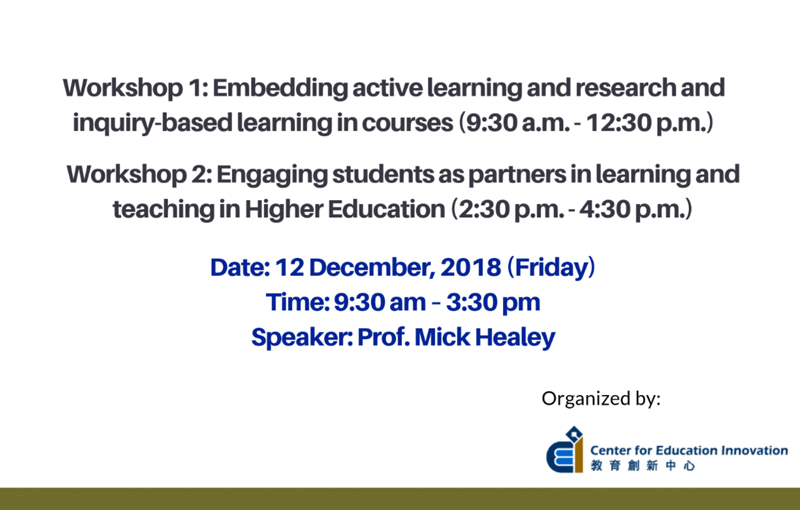
Details of the workshop
Date: 12 December, 2018 (Friday)
Time: 9:30 am – 4:30 pm
Speaker: Prof. Mick Healey
Workshop 1:
Embedding active learning and research and inquiry-based learning in courses (9:30 a.m. – 12:30 p.m.)
In this interactive session, the presenter has explored with participants the meaning of the concepts of active, research and inquiry learning and discusses a range of ways in which they may lead to greater student engagement. Particular attention was paid to embedding active and inquiry based activities into courses. The argument of this workshop was that we need to see our students as producers not just consumers of knowledge, in which the students are engaged in undertaking research and inquiry and producing new knowledge for themselves and, in many cases, contributing to new knowledge for society. The session has be illustrated with numerous examples of active learning practices and mini-case studies of research and inquiry-based learning practices particularly from research-intensive institutions around the world.
Workshop 2:
Engaging students as partners in learning and teaching in Higher Education (2:30 p.m. – 4:30 p.m.)
Ways of engaging students in higher education as partners in learning and teaching is arguably one of the most important issues facing higher education in the 21st Century. Partnership is essentially a process for engaging students, though not all engagement involves partnership. It is a way of doing things, rather than an outcome in itself. In this interactive session the presenter has explored four ways in which students may be engaged as partners through: a) Learning, teaching and assessment; b) Subject-based research and inquiry; c) Scholarship of teaching and learning; and d) Curriculum design and pedagogic advice and consultancy. Particular attention has be paid to how we may build on and move beyond listening to the student voice and involve students as change agents who can have an impact on the teaching and learning that they and their fellow students experience, through mentoring staff, co-researching teaching and learning, and co-designing the curriculum.









